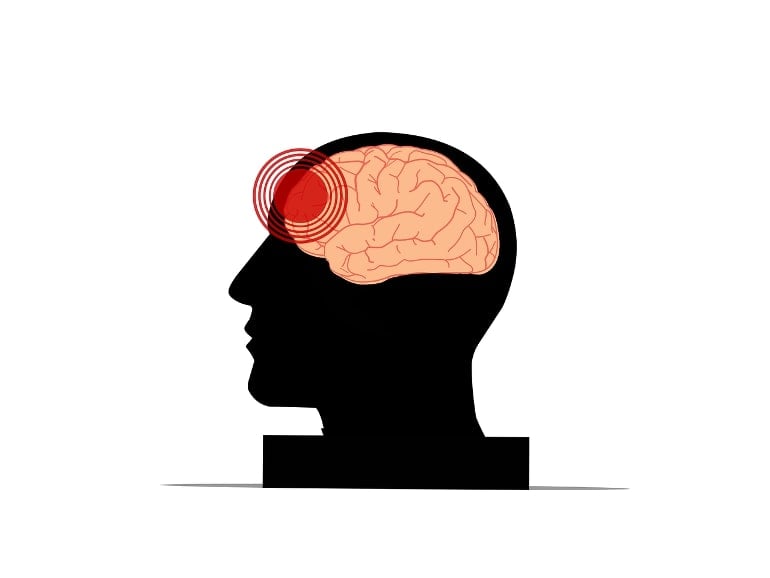Summary: Better glucose control can improve brain structure and function in young people with Type 1 diabetes.
Source: Nemours
Tight control of blood sugar in teens with Type 1 diabetes may help reduce the disease’s damaging effects on the brain, effects which have been shown even in younger children, according to a study published online today in Nature Communications.
The findings indicate that better glucose control can actually improve brain structure and function in youth with Type 1 diabetes, bringing them closer to their peers without diabetes, investigators said.
This proof-of-concept pilot study – the most detailed to date on this topic – was jointly led by investigators from Nemours Children’s Health, Jacksonville and Stanford University School of Medicine.
“These results offer hope that harm to the developing brain from Type 1 diabetes might be reversible with rigorous glucose control,” said the paper’s senior author, and co-principal investigator, pediatric endocrinologist Nelly Mauras, MD, of Nemours Children’s Health Jacksonville and professor of pediatrics at Mayo Clinic College of Medicine.
“Use of an automated hybrid closed-loop system–an insulin delivery system linked to a continuous glucose monitor–was associated with better blood glucose concentrations, which translated in our study to quantifiable differences in brain structure and cognition.”
The study was conducted through the five-center Diabetes Research in Children Network (DirecNet). Funded by the National Institutes of Health (NIH), DirecNet has longitudinally followed a cohort of children with and without diabetes for nearly eight years. DirecNet studies have added to evidence that children and teens with diabetes undergo detrimental changes in the brain – with effects including below-normal IQ – and that these differences are linked to high blood sugars.
Dr. Mauras and the DirecNet investigators recruited 42 adolescents, aged 14 to 17 years, diagnosed with Type 1 diabetes before the age of eight who were receiving insulin therapy. The teens were randomized to one of two groups – one using a hybrid closed-loop insulin delivery system and the other receiving standard diabetes care.
The researchers conducted cognitive assessments and multi-modal brain imaging with all participants before and after the six-month study period.
A hybrid closed-loop insulin delivery system, used properly and continuously, can increase the amount of time when blood sugar is in a healthy range. It particularly helps stabilize blood sugar during sleep, when detection and treatment of early signs of hypoglycemia are more difficult.
The system uses a closed glucose monitor (CGM) to measure blood sugar every five minutes through a sensor under the skin. The CGM connects wirelessly to an insulin pump that adjusts the amount of insulin based on the latest CGM reading.
Participants using the closed-loop glucose control system showed significantly greater improvement than the standard care group in key brain metrics indicative of normal adolescent brain development – in other words, their results were closer to those of teens without diabetes.
The closed-loop group also showed higher cognitive (IQ) outcomes and functional brain activity, more in line with normal adolescent brain development.
“We have known for some time that better control of blood glucose levels in persons with Type 1 diabetes can prevent or reduce damage to a number of biological systems (for example, kidney, eyes, nerves, blood vessels).

“Our new research joins with other studies to highlight that better control of blood glucose levels in children with Type 1 diabetes can potentially reduce injury to the maturing brain and lead to measurable improvements in brain development and function as well,” said lead author and co-principal investigator, Allan Reiss, MD, the Howard C. Robbins Professor of Psychiatry and Behavioral Sciences and a professor of radiology at Stanford.
Type 1 diabetes is an autoimmune disease, in which the body’s immune system mistakenly destroys insulin-producing cells in the pancreas. Its causes are not fully understood, and currently no cure exists.
An estimated 244,000 children and adolescents in the U.S. have this condition, which can cause sometimes serious health problems that develop quickly or that show up later in life.
This study builds on previous research showing that strict blood sugar control leads to lower rates of diabetes complications such as blindness, kidney failure, and amputations.
Funding: This research was supported by grants from the NIH Eunice Kennedy Shriver National Institute of Child Health and Human Development (Grant 5R01-HD-078463) and a grant from the Juvenile Diabetes Research Foundation. Other investigators at Nemours participated in the project (Larry Fox, MD, Allison Cato, PhD, Keisha Bird DNP and Kim Englert, RN). Researchers at Stanford University (Bruce Buckingham, MD), Washington University in St. Louis (Neil White, MD), the University of Iowa (Eva Tsalikian, MD), Yale University (Stuart Weinzimer, MD) and the Jaeb Center for Health Research (John Lum) also contributed to the project.
About this diabetes research news
Author: Heather Jameson
Source: Nemours
Contact: Heather Jameson – Nemours
Image: The image is in the public domain
Original Research: Open access,
“A Pilot randomized trial to examine effects of a hybrid closed-loop insulin delivery system on neurodevelopmental and cognitive outcomes in adolescents with type 1 diabetes” by Nelly Mauras et al. Nature Communications
Abstract
A Pilot randomized trial to examine effects of a hybrid closed-loop insulin delivery system on neurodevelopmental and cognitive outcomes in adolescents with type 1 diabetes
Type 1 diabetes (T1D) is associated with lower scores on tests of cognitive and neuropsychological function and alterations in brain structure and function in children.
This proof-of-concept pilot study (ClinicalTrials.gov Identifier NCT03428932) examined whether MRI-derived indices of brain development and function and standardized IQ scores in adolescents with T1D could be improved with better diabetes control using a hybrid closed-loop insulin delivery system.
Eligibility criteria for participation in the study included age between 14 and 17 years and a diagnosis of T1D before 8 years of age. Randomization to either a hybrid closed-loop or standard diabetes care group was performed after pre-qualification, consent, enrollment, and collection of medical background information.
Of 46 participants assessed for eligibility, 44 met criteria and were randomized. Two randomized participants failed to complete baseline assessments and were excluded from final analyses.
Participant data were collected across five academic medical centers in the United States.
Research staff scoring the cognitive assessments as well as those processing imaging data were blinded to group status though participants and their families were not. Forty-two adolescents, 21 per group, underwent cognitive assessment and multi-modal brain imaging before and after the six month study duration. HbA1c and sensor glucose downloads were obtained quarterly.
Primary outcomes included metrics of gray matter (total and regional volumes, cortical surface area and thickness), white matter volume, and fractional anisotropy. Estimated power to detect the predicted treatment effect was 0.83 with two-tailed, α = 0.05.
Adolescents in the hybrid closed-loop group showed significantly greater improvement in several primary outcomes indicative of neurotypical development during adolescence compared to the standard care group including cortical surface area, regional gray volumes, and fractional anisotropy.
The two groups were not significantly different on total gray and white matter volumes or cortical thickness. The hybrid closed loop group also showed higher Perceptual Reasoning Index IQ scores and functional brain activity more indicative of neurotypical development relative to the standard care group (both secondary outcomes). No adverse effects associated with study participation were observed.
These results suggest that alterations to the developing brain in T1D might be preventable or reversible with rigorous glucose control. Long term research in this area is needed.






